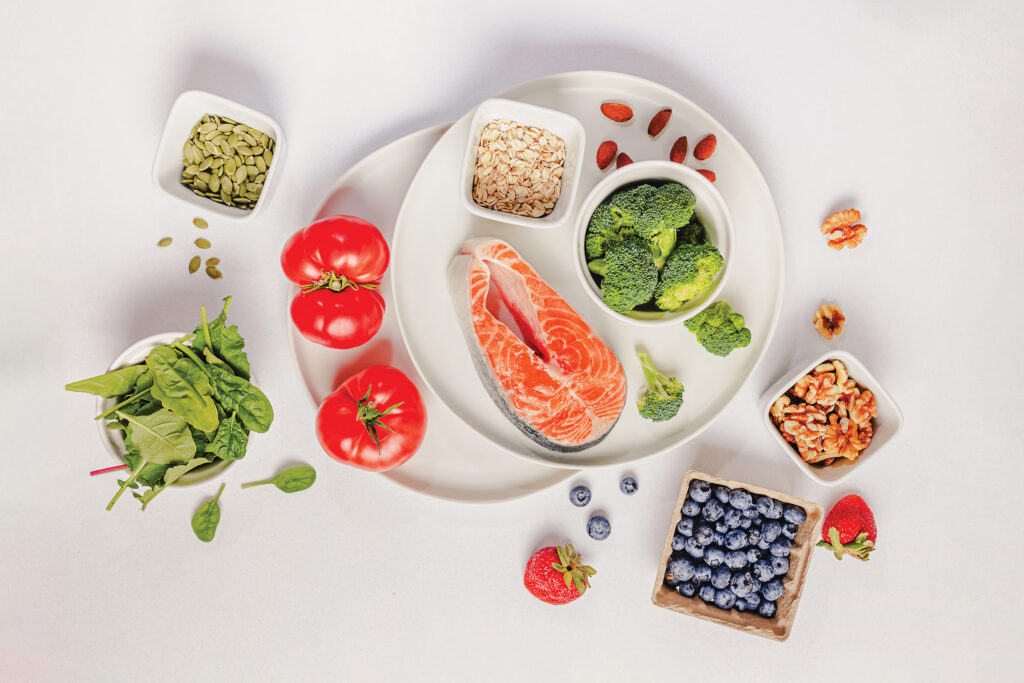How the foods you eat can impact on how you feel.
Chronic inflammation is more than just a passing discomfort, it can be a serious health concern. People with diabetes, heart disease, arthritis or injuries often experience chronic inflammation, which can lead to ongoing body pain, poor digestion, sluggishness, and more.
Widespread inflammation can also occur with conditions such as lupus, inflammatory bowel disease (IBD), and psoriasis — and can be very disruptive to day-to-day functioning.
Many turn to over-the-counter nonsteroidal anti-inflammatory drugs (NSAIDs) or prescription medications like corticosteroids to manage their inflammation pain. But did you know that your diet can also play a major role in helping bring down chronic and persistent inflammation?
Fight inflammation with food.
The food you eat can either help fight inflammation or fuel it, making it worse. It can be tough to remove tasty and loved foods from your diet, and adding in foods you may not regularly reach for — but the results can make a huge impact on how you feel.
Some foods that make inflammation worse:
– Saturated and trans fats — often found in red meat, processed meat (like deli meat and hot dogs), and fried foods
– Refined carbohydrates found in white bread, pasta and pastries
– Added sugars found in soda, sweets, energy drinks and baked goods
– Regular or excessive consumption of alcohol
Some foods that help reduce inflammation:
– Berries, such as strawberries, blueberries, raspberries and blackberries
– Leafy greens, such as spinach, kale, and collard greens
– Fatty fish includes salmon, mackerel, tuna and sardines
– Olive oil is a great source of healthy fats
– Nuts and seeds, including walnuts, almonds, and flaxseeds
– Whole grains such as quinoa, brown rice, and oats
Simple Swaps for a Healthier Diet.
If an anti-inflammatory diet feels overwhelming, start with small, sustainable changes, swapping out known inflammation inducing foods for an anti-inflammatory option. Such as making brown rice, instead of white rice, or skipping the cookie and grabbing a low sugar yogurt instead. Eating well isn’t just about avoiding disease—it’s about feeling your best every day. A diet rich in whole, nutrient-packed foods can help keep inflammation at bay and support your long-term well-being.
If you want help improving your diet, a WellRight Health Coach can offer you suggestions, resources and support.

